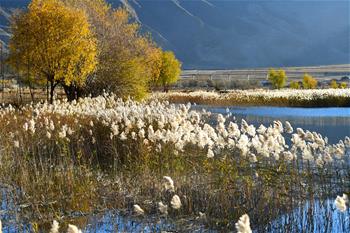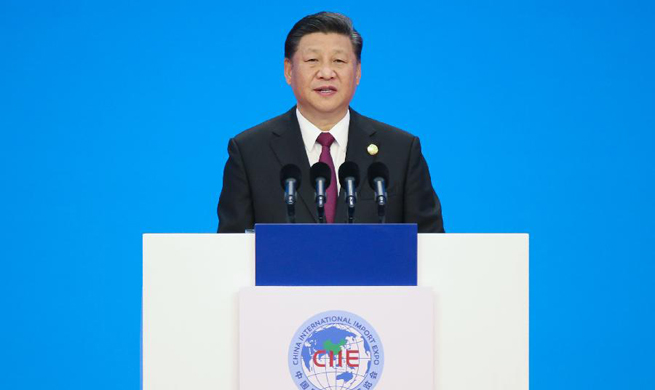SUVA, Nov. 5 (Xinhua) -- Fijian Minister for Health and Medical Services Rosy Akbar opened the Oceania Planetary Health Forum in Nadi, Fiji's third largest city on Monday, calling for an end to complacency regarding natural disasters and the impacts of climate change on health and wellbeing.
"Climate change, biodiversity loss and deforestation have an influence on how, when and where infectious diseases emerge," he said. "Climate change, droughts, and extreme storms make it harder to grow food, while there is a nutrition imbalance making people more susceptible to malnutrition and disease."
"Air pollution can lead to cardiorespiratory illnesses and other diseases. Cyclones and other major storms put people's lives at risk. Our people also have to deal with severe consequences on our mental health needs. Never before has humanity's footprint on Earth's natural systems been so large," he added.
Akbar noted the importance of addressing planetary health holistically and urged for discussions on healthy islands to focus on maternal and child health, considering the vast majority of regional youths, with 50 percent of Fijians aged below 25 years.
She said literacy on climate change mitigation and adaptation must be mainstreamed into the curriculum and involve family, children and youths.
"Healthy islands place emphasis on people and environment more than disease. Key to healthy islands is multi-sectoral and multidisciplinary action," Akbar said.
Pacific Islands Forum Secretariat (PIFS) Deputy Secretary-General Cristelle Pratt noted the serious impact of rising sea temperatures and acidification to the health of the Pacific Ocean, which in turn impacts food security among communities.
"Currently coral reefs are one of the fastest deteriorating natural systems on the planet, and their link to food security of the Pacific people is obvious and as a consequence the outlook is very worrying," she said.
"What is perhaps less obvious are the consideration for what this means for a region already facing a non-communicable diseases (NCDs) crisis. The death rate from diabetes in Pacific Island countries is a staggering 26 times more than in nearby Australia and New Zealand, and sustaining our coastal fisheries could be one of the most important strategies for preventing NCDs in the region."
The forum seeks to develop a regional research framework for planetary health, build on current foundations and collaborations for the establishment of an Oceania Planetary Health network, document case studies of Oceania planetary health good practice and to produce a communique for global policy dialogue.













